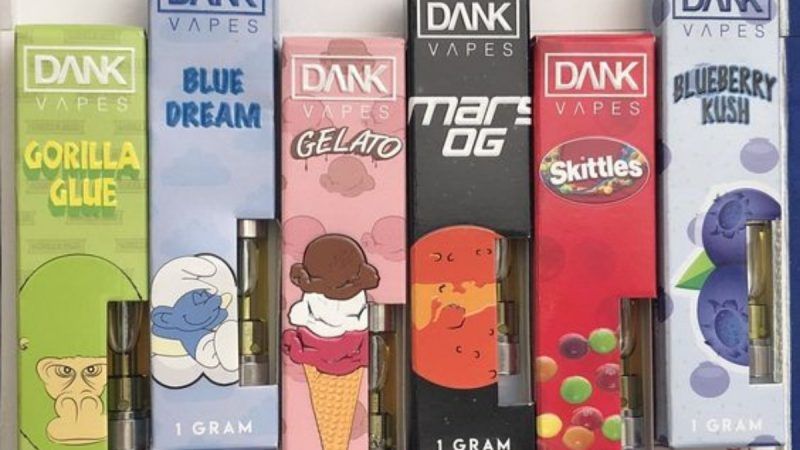New Study Complicates the Causes of Vaping-Related Lung Diseases
Mayo Clinic researchers say tissue samples from 17 patients were consistent with toxic exposure rather than lipoid pneumonia.

It's clear that the vaping-related respiratory illnesses reported in recent months overwhelmingly involve cannabis products, typically purchased on the black market. But the specific chemical culprits remain uncertain, as demonstrated by a new study of lung tissue samples from 17 patients across the country, 71 percent of whom admitted vaping cannabis extracts.
One theory floated by state and federal researchers is that inhaling vapor from oil-based THC fluids can lead to lipoid pneumonia, a rare condition caused by fat particles in the lungs. In particular, concern has focused on the additive vitamin E acetate, which was detected in most of the cannabis products tested by the Food and Drug Administration and New York's state lab. But the new study, which was reported in a letter to The New England Journal of Medicine yesterday, found no evidence to support that theory.
Mayo Clinic researchers examined lung tissue from 17 patients, including two who died after developing respiratory symptoms. "Much recent attention has been given to the possibility that vaping-associated lung injury may represent exogenous lipoid pneumonia," the researchers report. "However, none of our cases showed histologic evidence of exogenous lipoid pneumonia and no radiologic evidence thereof has been found."
Rather, the injuries were consistent with exposure to toxic chemicals. "While we can't discount the potential role of lipids," surgical pathologist Brandon Larsen said in a press release, "we have not seen anything to suggest this is a problem caused by lipid accumulation in the lungs. Instead, it seems to be some kind of direct chemical injury, similar to what one might see with exposures to toxic chemical fumes, poisonous gases, and toxic agents….Based on what we have seen in our study, we suspect that most cases involve chemical contaminants, toxic byproducts, or other noxious agents within vape liquids."
These 17 patients represent a small sample of the 805 cases of vaping-related lung disease, including 12 deaths, counted by the U.S. Centers for Disease Control and Prevention as of September 27. Lipoid pneumonia may account for some of those patients' symptoms, while others may be due to toxic additives or contaminants.
"Black market THC products and counterfeit vape cartridges sold over the internet and by street dealers are very susceptible to contamination," notes Boston University public health professor Michael Siegel. "Unlike legal THC oils, the black market products are not tested, and therefore might contain pesticides, residual solvents, other noxious chemicals, or synthetic cannabinoids, each of which could potentially cause a direct chemical injury to the lung."
In a report on black-market THC vape cartridges, Leafly describes "a contaminated supply chain that begins in the manufacturing centers of China, runs through the wholesale markets of downtown Los Angeles, disperses to regional pen-filling operations, and finally ends up in the hands of unsuspecting consumers." Along the way, it says, "each vape cartridge….may pick up lead (the toxic heavy metal), pesticides, unsafe additives like vitamin E oil, and the residual solvent butane."
Although most of the patients who vaped cannabis extracts used black-market products, two people in Oregon who died after vaping THC reported that they bought cartridges from state-licensed shops. Whatever the agents responsible for these acute reactions, it seems likely that they are relatively new. While people have been vaping THC and CBD for years in states where such products are legal for medical or recreational use, the reports of respiratory illnesses began to emerge only last spring.
"The results of this study add to the growing evidence that contaminated black market THC oils or counterfeit, bootleg vape cartridges are the primary, if not sole, cause of the outbreak," Siegel writes. "In two cases, legally purchased THC oils from dispensaries in Oregon were implicated. However, there are no cases that have been shown to be associated with the use of store-purchased nicotine e-liquids, and it seems extremely unlikely that these products have any involvement in the outbreak."
